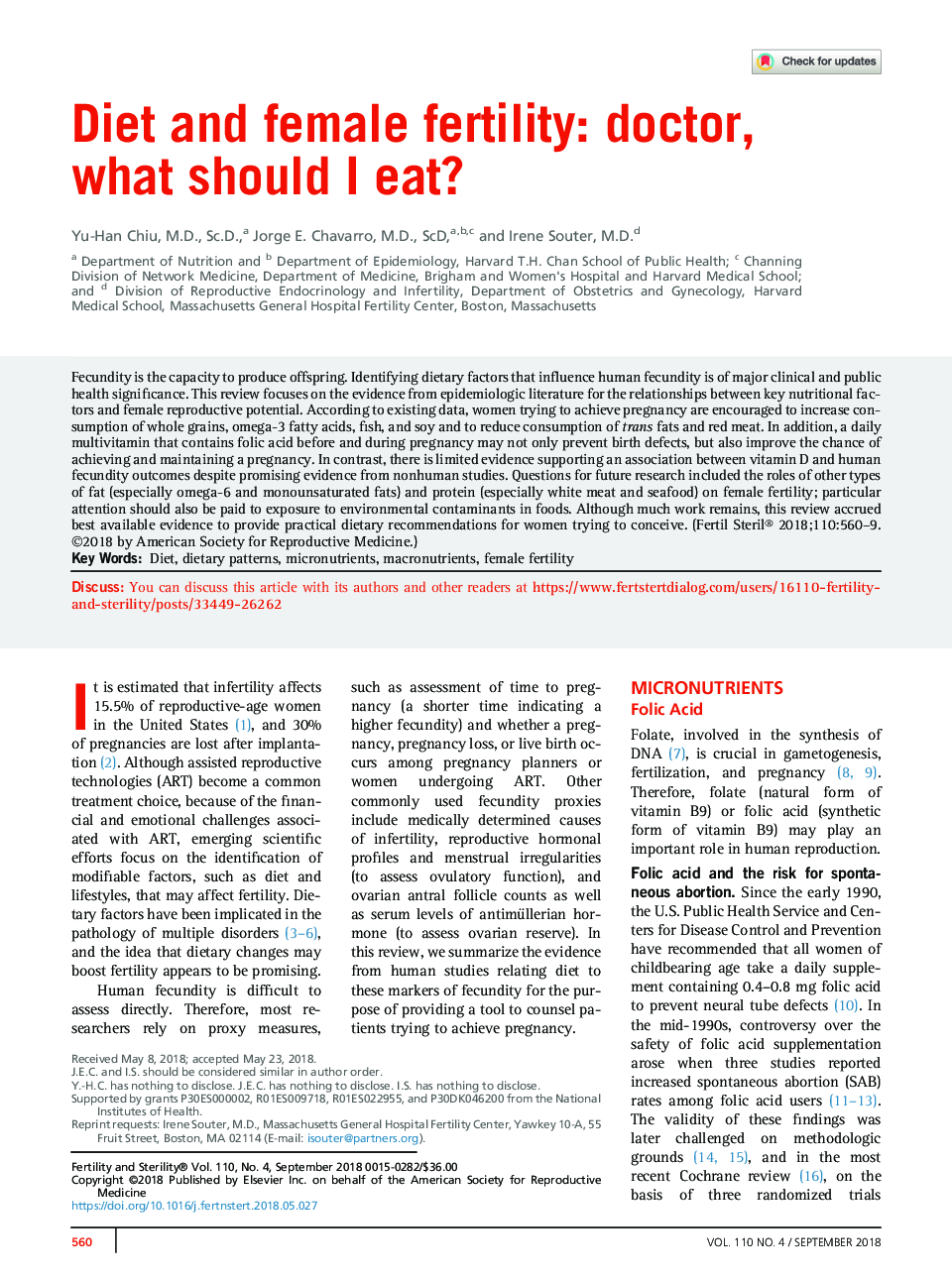| Article ID | Journal | Published Year | Pages | File Type |
|---|---|---|---|---|
| 8964446 | Fertility and Sterility | 2018 | 10 Pages |
Abstract
Fecundity is the capacity to produce offspring. Identifying dietary factors that influence human fecundity is of major clinical and public health significance. This review focuses on the evidence from epidemiologic literature for the relationships between key nutritional factors and female reproductive potential. According to existing data, women trying to achieve pregnancy are encouraged to increase consumption of whole grains, omega-3 fatty acids, fish, and soy and to reduce consumption of trans fats and red meat. In addition, a daily multivitamin that contains folic acid before and during pregnancy may not only prevent birth defects, but also improve the chance of achieving and maintaining a pregnancy. In contrast, there is limited evidence supporting an association between vitamin D and human fecundity outcomes despite promising evidence from nonhuman studies. Questions for future research included the roles of other types of fat (especially omega-6 and monounsaturated fats) and protein (especially white meat and seafood) on female fertility; particular attention should also be paid to exposure to environmental contaminants in foods. Although much work remains, this review accrued best available evidence to provide practical dietary recommendations for women trying to conceive.
Related Topics
Health Sciences
Medicine and Dentistry
Obstetrics, Gynecology and Women's Health
Authors
Yu-Han M.D., Sc.D., Jorge E. M.D., ScD, Irene M.D.,
